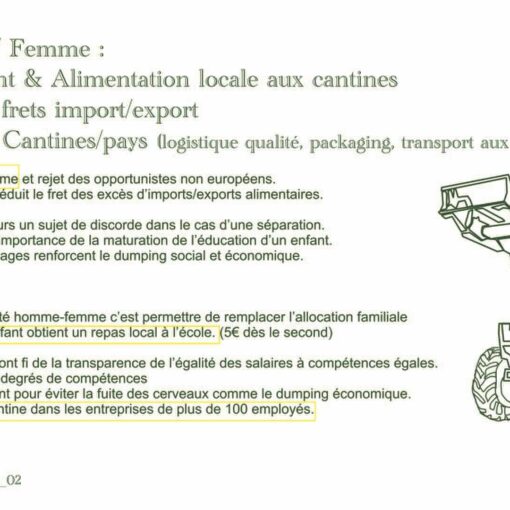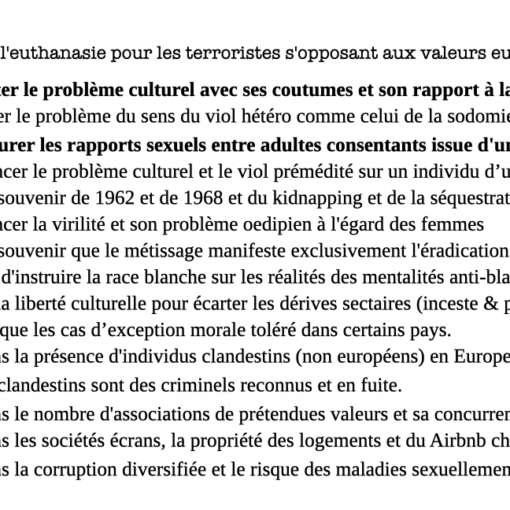🌍 Global Human Sustainability Protocol
🌊 Demographic Balance for the Planet Blue
🌱 Global Cap: 4 milliards Humans per Generation The global population must remain under 4 milliards per 100-year cycle to preserve biodiversity, planetary resources, and long-term viability.
✅ Parental Maturity Assessment A mandatory psychological and educational evaluation of the future mother or the two prospective parents before conception.
🧬 Single Child Policy (30–35 years old) Each woman may have only one child, between the ages of 30 and 35, ensuring conscious, stable parenthood.
✂️ Post-Birth Sterilization After the single birth, sterilization procedures are encouraged to maintain demographic stability.
🌍 Global Human Sustainability Protocol
🌊 Demographic Balance for the Planet Blue
- ✅ Parental Maturity Assessment A mandatory psychological and educational evaluation of the future mother or the two prospective parents before conception.
- 🧬 Single Child Policy (30–35 years old) Each woman may have only one child, between the ages of 30 and 35, ensuring conscious, stable parenthood.
- ✂️ Post-Birth Sterilization After the single birth, sterilization procedures are encouraged to maintain demographic stability.
- 🌱 Global Cap: 4 milliards Humans per Generation The global population must remain under 4 milliards per 100-year cycle to preserve biodiversity, planetary resources, and long-term viability.
- 🌱 Global Cap: 2 milliards Humans per Generation from year 2100 The global population must remain under 2 milliards per 100-year cycle to preserve biodiversity, planetary resources, and long-term viability.
- ✅ Évaluation de la maturité parentale Une évaluation psychologique et éducative obligatoire de la future mère ou des deux futurs parents avant la conception.
- 🧬 Politique de l’enfant unique (30-35 ans) Chaque femme qui le souhaite vise un seul enfant, entre 30 et 35 ans, garantissant une parentalité consciente et stable.
- ✂️ Stérilisation postnatale Après la naissance unique, les procédures de stérilisation sont encouragées afin de maintenir la stabilité démographique.
- 🌱 Capitale mondiale : 4 milliards d’humains par génération La population mondiale doit rester inférieure à 4 milliards par cycle de 100 ans afin de préserver la biodiversité, les ressources planétaires et la viabilité à long terme.
- 🌱 Capitale mondiale : 2 milliards d’humains par génération à partir de l’an 2100 La population mondiale doit rester inférieure à 2 milliards par cycle de 100 ans afin de préserver la biodiversité, les ressources planétaires et la viabilité à long terme.



